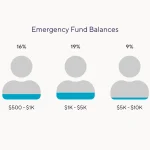
The internet is awash with investment schemes. But how do you decide which one to join? Here are some tips. First, don’t fall prey to schemes you can’t trust. Second, remember that you’re not the only person looking for an investment scheme. Investing with a mutual fund means that you have the collective knowledge of other investors. That way, you’re less likely to be tempted by a bad deal.
Unregulated investment schemes include various types of assets and can be difficult to distinguish from regulated ones. Some of these are real estate, cryptocurrency, agricultural, precious metals, and sports betting. Unregulated investment schemes can also involve art, parking spaces, storage units, hotels, student accommodations, and even care homes. Some of these investment schemes may be well-meaning, but can snowball into an unmanageable situation. Before investing in any scheme, read up on its terms and conditions and contact the Better Business Bureau to learn more.
Collective funds are listed in newspapers and can improve your diversification of assets. Diversification helps mitigate unsystematic risks. Some investment funds target particular geographic regions or industry sectors. Typically, domestic markets are biased towards familiarity and a lack of currency risk. Mutual funds are often selected based on their past investment performance, fees, and investment aims. However, you should be careful and carefully compare funds before investing. You may be able to find an excellent choice by following these tips.
Unregulated investment products are high risk. They are typically not regulated and are sold as low risk opportunities. However, they are advertised as such to entice investors to invest. These investment schemes have the potential to be scams. However, you should not fall prey to these investments. If they offer you high profits, they’re probably a scam. But if you follow these tips, you’ll avoid becoming a victim. So, how do you avoid falling victim to investment schemes?
Another common option is collective investment funds. Investment funds allow you to pool your money with others and benefit from the inherent advantages of working in a group. This reduces the risks of the investments, while letting you enjoy the benefits of pooled money. And the best part is that they provide you with a full time fund manager who monitors market conditions and reacts accordingly. Remember that any financial investment carries risk, and you cannot guarantee that your money will be returned exactly as invested.
Another advantage of investment funds is that they are cheaper than individual investments. Managers can spread fixed costs over many investors and make large transactions for a fraction of the cost of buying directly. These are all benefits that managers want to provide their investors. However, there are some additional costs to consider, in addition to the annual management fee. These costs include dealing fees when units are bought and sold. So, make sure to read all the details before making an investment.
Finally, before purchasing an investment scheme, you should know whether you want to invest in a fund that allows you to withdraw money periodically or in one lump sum. You may also want to consider how easy it is to withdraw money from your fund. Make sure you understand how much you need to make the investment work for you. Inflation, after all, eats away at the value of money you’ve already invested. A fund that allows you to withdraw your money easily may not be worth it in the long run.

